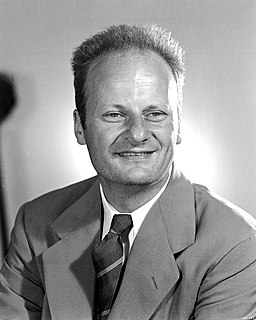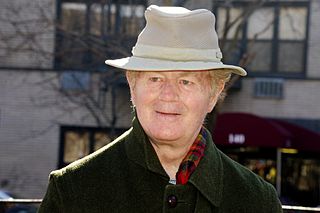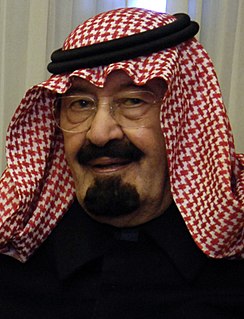A Quote by Herman Kahn
As for total disarmament, there are almost 50,000 nuclear weapons in the world today; even if they were banned, not all would be destroyed.
Quote Topics
Related Quotes
A convention on the comprehensive ban of nuclear weapons should be negotiated. Since biological and chemical weapons have been prohibited, there is no reason why nuclear weapons, which are more destructive, should not be comprehensively banned and thoroughly destroyed. All it takes to reach this objective is strong political will.
Today we are rightly in an era of disarmament and dismantlement of nuclear weapons. But in some countries nuclear weapons development still continues. Whether and when the various Nations of the World can agree to stop this is uncertain. But individual scientists can still influence this process by withholding their skills.
Unlike South Africa, which decided on its own to eliminate its nuclear weapons and welcomed inspection as a means of creating confidence in its disarmament, Iraq appears not to have come to a genuine acceptance - not even today - of the disarmament, which was demanded of it and which it needs to carry out to win the confidence of the world and to live in peace.
What is the only provocation that could bring about the use of nuclear weapons? Nuclear weapons. What is the priority target for nuclear weapons? Nuclear weapons. What is the only established defense against nuclear weapons? Nuclear weapons. How do we prevent the use of nuclear weapons? By threatening to use nuclear weapons. And we can't get rid of nuclear weapons, because of nuclear weapons. The intransigence, it seems, is a function of the weapons themselves.
The court was unable to rule on all circumstances in which nuclear weapons might be used, and it said in view of the problems, the risks posed by nuclear weapons, and in view of the lack of certainty of the law in all circumstances, the best course is fulfilling the obligation of good faith negotiations of nuclear disarmament contained in the nuclear non-proliferation treaty.
The use of a mere dozen nuclear weapons ... would be a human catastrophe without parallel. ... Because so few weapons can kill so many people, even far-reaching disarmament proposals would leave us implicated in plans for unprecedented slaughter of innocent people. The sole measure that can free us from this burden is abolition.
We have a crisis in nuclear weapons, and again, thanks very much to the Democrats: Bill Clinton, who removed us from the Anti-Ballistic Missile Treaty framework for nuclear disarmament, and then Barack Obama, who created a trillion-dollar budget for us to spend on a new generation of nuclear weapons and modes of delivery.
We're fundamentally opposed to the expansion of nuclear-weapons arsenals. This is why we have proposed the formation of an unbiased organization and the disarmament of the nuclear powers. We don't need any weapons. We're a civilized, cultured people, and our history shows that we have never attacked another country.
I don't want to use the term "nuclear weapons" because those people in Iran who have authority say they are not building nuclear weapons. I make an appeal to the countries who do have nuclear weapons. They don't consider them a nuclear threat. But let's say a country that doesn't have nuclear weapons gets involved in building them, then they are told by those that already have nuclear weapons that they oppose [such a development]. Where is the justice in that?
Negotiations with Iran, especially, will not be easy under any circumstances, but I suspect that they might be somewhat less difficult if the nuclear-weapon states could show that their requests are part of a broader effort to lead the world, including themselves, toward nuclear disarmament. Preventing further proliferation is essential, but it is not a recipe for success to preach to the rest of the world to stay away from the very weapons that nuclear states claim are indispensable to their own security.
From the prophets' dreams of the time when nations would beat their swords into plowshares to today's aspirations of a nuclear-weapons-free world, we have sought to avoid armed conflict and not yield to despair in the search for universal peace. The nuclear threats from Iran, North Korea, and terrorists can only be overcome through international cooperation. We call upon Congressional leaders and those worldwide to join together to ensure the fulfillment of these long-overdue initiatives and the achievement of a safer future without nuclear weapons.


































